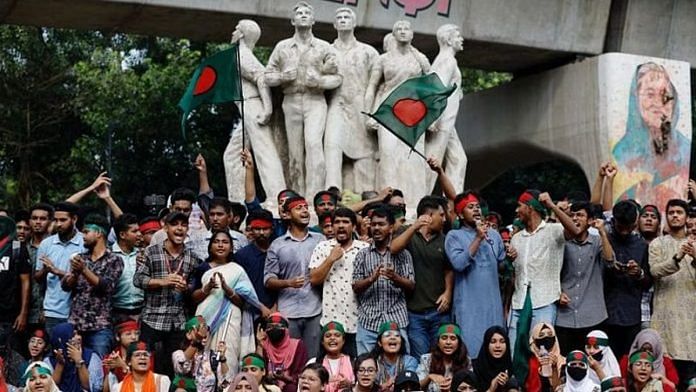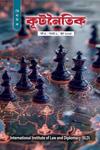
A research wing of Dhaka University’s law department, Civitas Legum, has been collecting information on students killed in the July Bangladesh violence so as to help their parents with legal aid and filing police complaints.
Volunteers have set up booths at the university campus where families can come and register the names of their children who lost their lives in the anti-government protests which ultimately turned into a mass movement that led to the ouster of the Sheikh Hasina government. All those who register are provided legal aid, consultations on how they can get an FIR registered or move court, according to the volunteers.
The protests began in July and spilled over to August. Many are alleged to have been killed in firing by security forces and police. Last month, ThePrint had reported how over a thousand students were admitted with pellet injuries at the National Institute of Ophthalmology, Dhaka, during the peak of the protests.
According to data provided by Civitas Legum—a ‘research, program and response wing’ of Dhaka University—1,581 incidents of casualties have been reported until 25 September.
Your contribution helps us bring you accurate, impactful stories and on-the-ground reporting. Support the work that keeps journalism free, fair, and fearless.
Civitas also contacted each of the victims’ families individually to collect necessary information to file a lawsuit (individual lawsuits against suspects). They have so far provided legal aid to over 43 deceased’s families and have lawyers in both the country’s Supreme Court and district courts working with them.
“We collected details like names, addresses, place of occurrence, force responsible, time of attack, the hospital that provided primary medical support or where he or she he was first brought dead, any eye witness accounts etc. We also collected relevant documents like photographs of the incidents, legal documents, hospital documents, post-mortem reports, statements of family members and witnesses etc. for reserving the legal evidence. Based on that information we provide them legal suggestions,” Civitas said in an emailed response to ThePrint.
“Our legal researchers are working hard every day to assist the filing of cases and in some cases when required documentations and drafting is being done,” they added.
The wing further said that many families also do not wish to file complaints out of fear. “Many of the families are not ready to file cases out of fear of consequences. We are trying to convince them. That’s why we are now communicating with the prosecutors of the International Crime Tribunal set up by the Government of Bangladesh on how they can use the data and information we have collected to ensure speedy justice.”
The wing said they are also making sure that families of victims do not face any pressure or threats by any parties involved, and that all families get financial support from the government.
This article was written by Bismee Taskin and aananya Bhadrwaj, and it was originally published on The Print. Views in this article are author’s own and do not necessarily reflect IILD policy.





Leave a reply